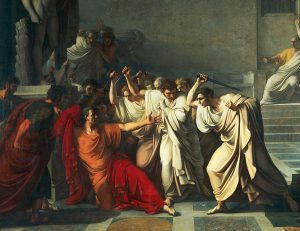This week’s debate will discuss whether theatre still stands as a legitimate art form for the public to indulge. We introduce Pastor Peter Day and actor Walter Wright from the Chamberlain’s Men.
Day:
The theatre needs to go. Every week there are fewer supporters of my sermons and I have started to note, and almost expected, a rise in the shift of public morals. The theatre’s surrounding areas are riddled with brothels, gambling houses, and public drinking places. Passers-by flirt dangerously with these immoral habits, even on holy days.
Wright:
Yet, the theatre blesses us all with entertainment, financial gain and explicit education on our country’s history and culture. The stories we share are before our time, and the revival of dead playwrights’ work means that I, as an actor, can express their once lively rhetoric. How are those without the ability to read allowed to learn about their own country’s heritage without a visual retelling of our past? These histories ‘plant understanding in the hearts of the ignorant.’
Day:
I cannot fathom the disrespect towards the church that has become ingrained within the theatre, as our society abides by explicit biblical readings and teaching of these through religious worship. If our society is seeing bad examples of this onstage, then they will abide by this in life itself. The minds of the idle are easily tainted by visual example and spectacle. Misbehaviour could lead to rebellion against our Lord. This will not do. How can religious minds like mine remain unscathed by the bad example that theatre brings? Even I have the potential to be persuaded by their grandeur and noble garments.
Wright:
I know some might refute these statements with idle chatter about the display of immoral behaviour and cause for this to become riotous, however when the public are within the walls of our Globe, they are neither out whoring or gambling, they are being enlightened, educated and entertained.
Day:
At the very least, these plays need to be censored and abandoned. The mass grouping of immoral citizens could easily insight a moral rebellion, leading to idol minds going into promiscuous professions, such as pick-pocketing, conning the vulnerable and, even at some lengths, prostitution. Furthermore, the succeeding unproductivity of those not at work has the potential to lead to social unrest and idleness, especially with the volatile religious climate as Catholicism takes reign.
Wright:
We are supported generously by our sovereign Queen’s opinions of the stage. Surely her opinion should be paramount for our populous. As she is the earth’s representative of God, how can this not be enjoyed by the religious? ‘Since God has provided us of these pastimes, why may we not use them to his glory?’
By Felix, Ross, Joumana, Rebecca and Francesca

